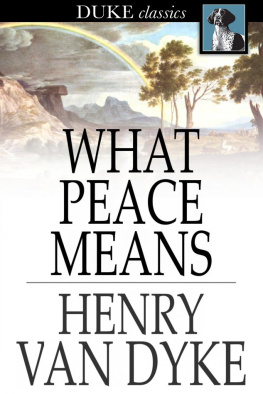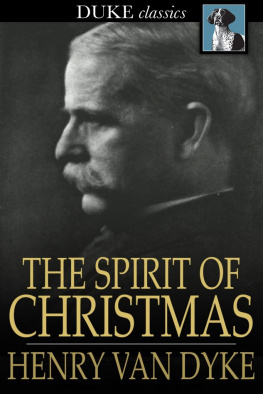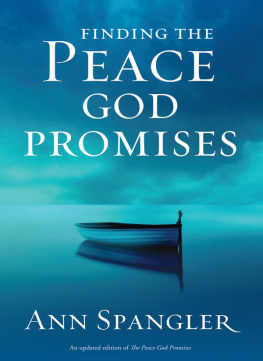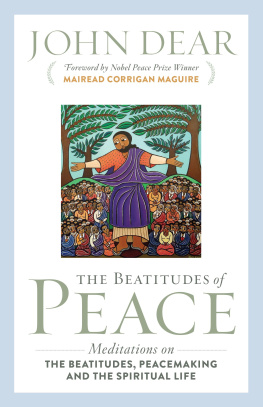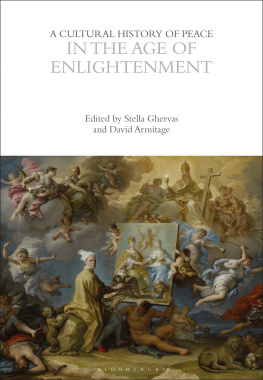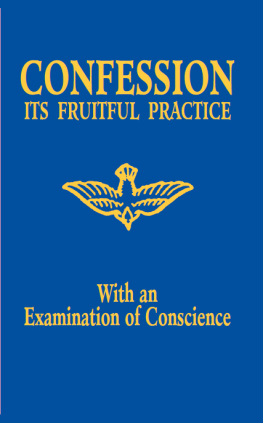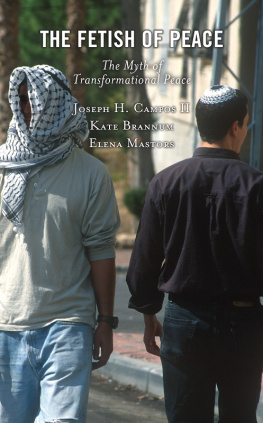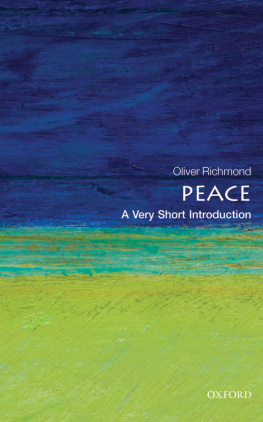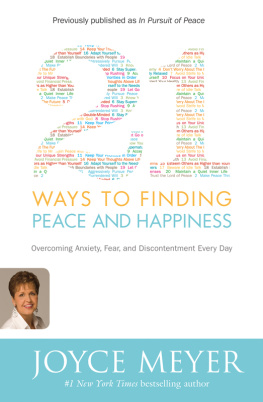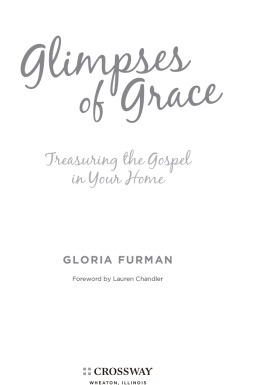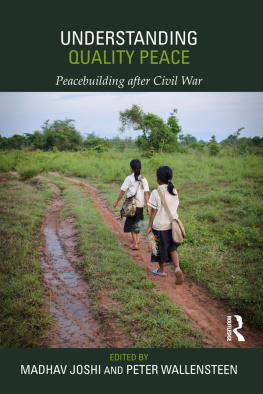Henry Van Dyke - What Peace Means
Here you can read online Henry Van Dyke - What Peace Means full text of the book (entire story) in english for free. Download pdf and epub, get meaning, cover and reviews about this ebook. publisher: Duke Classics, genre: Science. Description of the work, (preface) as well as reviews are available. Best literature library LitArk.com created for fans of good reading and offers a wide selection of genres:
Romance novel
Science fiction
Adventure
Detective
Science
History
Home and family
Prose
Art
Politics
Computer
Non-fiction
Religion
Business
Children
Humor
Choose a favorite category and find really read worthwhile books. Enjoy immersion in the world of imagination, feel the emotions of the characters or learn something new for yourself, make an fascinating discovery.
- Book:What Peace Means
- Author:
- Publisher:Duke Classics
- Genre:
- Rating:4 / 5
- Favourites:Add to favourites
- Your mark:
- 80
- 1
- 2
- 3
- 4
- 5
What Peace Means: summary, description and annotation
We offer to read an annotation, description, summary or preface (depends on what the author of the book "What Peace Means" wrote himself). If you haven't found the necessary information about the book — write in the comments, we will try to find it.
These days, the concept of peace has grown a little worn through overuse. Having been appropriated by so many different groups at every point on the ideological spectrum, the promise of peace has been rendered so abstract as to be almost meaningless. In this series of sermons, Henry Van Dyke relates the concept of peace to Christian faith and spiritual growth, dispensing straightforward advice to help believers achieve a sense of serenity and fulfillment.
What Peace Means — read online for free the complete book (whole text) full work
Below is the text of the book, divided by pages. System saving the place of the last page read, allows you to conveniently read the book "What Peace Means" online for free, without having to search again every time where you left off. Put a bookmark, and you can go to the page where you finished reading at any time.
Font size:
Interval:
Bookmark:

First published in 1919
ISBN 978-1-62011-377-6
Duke Classics
2012 Duke Classics and its licensors. All rights reserved.
While every effort has been used to ensure the accuracy and reliability of the information contained in this edition, Duke Classics does not assume liability or responsibility for any errors or omissions in this book. Duke Classics does not accept responsibility for loss suffered as a result of reliance upon the accuracy or currency of information contained in this book.
This little book contains three plain sermons which were preached in NewYork in the Easter season of 1919, in the Park Avenue PresbyterianChurch, of which my son is minister. I had no thought that they wouldever be printed. They were, and are, just daily bread discourses meantto serve the spiritual needs of a congregation of Christian people,seekers after truth, inquirers about duty, strangers and pilgrims, inthe great city and the troubled world.
But if, as friends think, these simple chapters may be of servicethrough the printed page to a larger circle of readers, I willingly andfreely let them go.
May the blessing of Jesus follow them on their humble path. May theSpirit of Truth bring them home to some hearts that want them,to thosewho desire to escape from evil and do good,to those who "seek peaceand ensue it."
HENRY VAN DYKE.
Park Avenue Church Manse, New York City.
Peace I leave with you: my peace I give unto you.ST. JOHN 14:27.
Peace is one of the great words of the Holy Scriptures.It is woven through the Old Testament and the New like a golden thread.It inheres and abides in the character of God,
"The central peace subsisting at the heart
Of endless agitation."
It is the deepest and most universal desire of man, whose prayer in allages has been, "Grant us Thy Peace, O Lord." It is the reward of therighteous, the blessing of the good, the crown of life's effort, and theglory of eternity.
The prophets foretell the beauty of its coming and the psalmists sing ofthe joy which it brings. Jesus Christ is its Divine Messiah, its highpriest and its holy prince. The evangelists and prophets proclaim andpreach it. From beginning to end the Bible is full of the praise ofpeace.
Yet there never was a book more full of stories of trouble and strife,disaster and sorrow. God Himself is revealed in it not as a calm,untroubled, self-absorbed Deity, occupied in beatific contemplation ofHis own perfections. He is a God who works and labours, who wars againstthe evil, who fights for the good. The psalmist speaks of Him as "TheLord of Hosts, strong and mighty in battle." The Revelation of St. Johntells us that "There was war in Heaven; Michael and his angels foughtagainst the dragon." Jesus Christ said: "I came not to send peace, but asword."
It is evident, then, that this idea of "peace," like all good and noblethings, has its counterfeit, its false and subtle versary, which stealsits name and its garments to deceive and betray the hearts of men. Wefind this clearly taught in the Bible. Not more earnestly does it praisetrue peace than it denounces false peace.
There is no peace, saith the Lord, unto the wicked (Isaiah 48:22).
For they have healed the hurt of the daughter of my people slightly,saying, Peace, peace; when there is no peace (Jer. 8:11).
If thou hadst known, even thou, at least in this thy day, the thingswhich belong unto thy peace! but now they are hid from thine eyes (St.Luke 19:42).
For to be carnally minded is death; but to be spiritually minded islife and peace (Romans 8:6).
There never was a time in human history when a right understanding ofthe nature of true peace, the path which leads to it, the laws whichgovern it, was more necessary or more important than it is to-day.
The world has just passed through a ghastly experience of war at itsworst. Never in history has there been such slaughter, such agony, suchwaste, such desolation, in a brief space of time, as in the fourterrible years of conflict which German militarism forced on the worldin the twentieth century. Having seen it, I know what it means.
Now we have "supped full with horrors." We have had more than enough ofthat bloody banquet The heart of humanity longs for peace, as it hasalways longed, but now with a new intensity, greater than ever before.Yet the second course of war continues. The dogs fight for the crumbsunder the peace-table. Ignorant armies clash by night. Cities arebombarded and sacked. The barbarous Bolsheviki raise the red flag ofviolence and threaten a war of classes throughout the world.
You can never make a golden age out of leaden men, or a peaceful worldout of lovers of strife.
Where shall peace be found? How shall it be attained and safeguarded?Evidently the militarists have assaulted it with their doctrine thatmight makes right. Evidently the pacifists have betrayed it with theirdoctrine of passive acceptance of wrong. Somewhere between these twoerrors there must be a ground of truth on which Christians can stand todefend their faith and maintain their hope of a better future for theworld.
Let me begin by speaking of Peace in the Soul. That is where religionbegins, in the heart of a person. Its flowers and fruits are social.They are for the blessing of the world. But its root is personal. Youcan never start with a classconscious or a massconsciousChristianity. It must begin with just you and God.
Marshal Joffre, that fine Christian soldier, said a memorable thingabout the winning of the war: "Our victory will be the fruit ofindividual sacrifice." So of the coming of peace on earth we may say thesame: it will be the fruit of the entrance of peace into individualhearts and lives.
A world at war is the necessary result of human restlessness andenmities. "From whence come wars and fightings among you? Come they nothence, even of your lusts, that war in your members?" Envy, malice,greed, hatred, deceit,these are the begetters of strife on earth.
A world at peace can come only from the cooperation of peaceful humanspirits. Therefore we must commence to learn what peace is, by seekingit in our souls through faith.
Christ promised peace to His disciples at the Communion in that littleupper room in Jerusalem, nineteen hundred years ago. Evidently it wasnot an outward but an inward peace. He told them that they would have alot of trouble in the world. But He assured them that this could notovercome them if they believed in Him and in His Father God. He warnedthem of conflict, and assured them of inward peace.
What are the elements of this wondrous gift which Christ gave to Hisdisciples, and which He offers to us?
I. First, the peace of Christ is the peace of being divinely loved.Nothing rests and satisfies the heart like the sense of being loved. Letus take as an illustration the case of a little child, which has growntired and fretful at its play, and is frightened suddenly by somechildish terror. Weeping, it runs to its mother. She takes the child inher arms, folds it to her breast, bends over it, and soothes it withfond words which mean only this: "I love you." Very soon the child sinksto rest, contented and happy, in the sense of being loved. "Herein islove, not that we loved God, but that he loved us, and sent his Son tobe the propitiation for our sins." In Jesus Christ God is stretching outHis arms to us, drawing us to His bosom, enfolding us in the secret ofpeace. If we believe in Jesus Christ as the Son of God, He makes us sureof a Divine affection, deep, infinite, inexhaustible, imperishable. "ForGod so loved the world, that he gave his only begotten Son, thatwhosoever believeth in him should not perish, but have everlastinglife." God, who "spared not his dearly-beloved Son, but delivered him upfor us all, how shall he not with him also freely give us all things?""Nothing shall be able to separate us from the love of God, which is inChrist Jesus our Lord."
Font size:
Interval:
Bookmark:
Similar books «What Peace Means»
Look at similar books to What Peace Means. We have selected literature similar in name and meaning in the hope of providing readers with more options to find new, interesting, not yet read works.
Discussion, reviews of the book What Peace Means and just readers' own opinions. Leave your comments, write what you think about the work, its meaning or the main characters. Specify what exactly you liked and what you didn't like, and why you think so.

